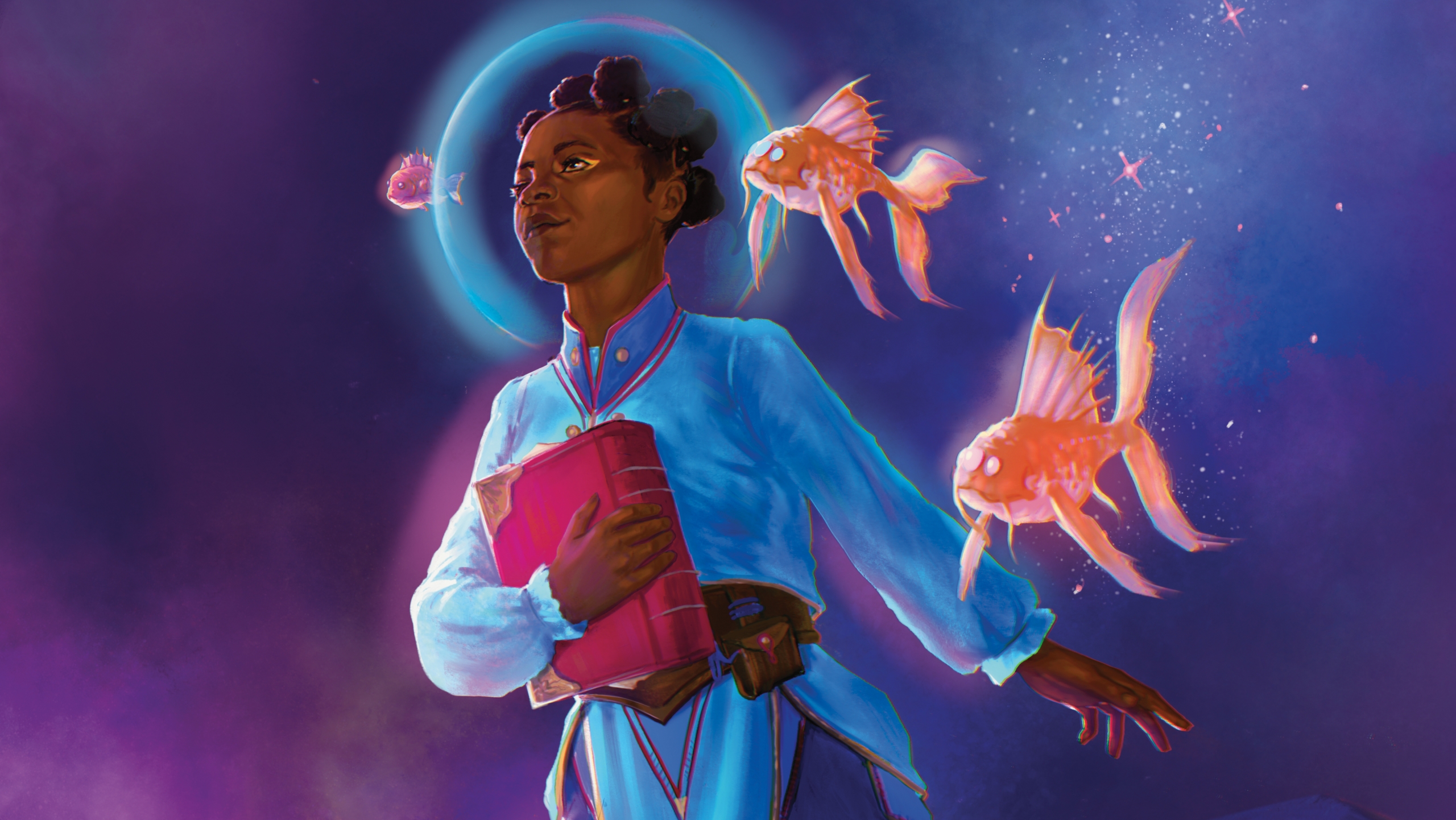
Wizards of the Coast has introduced adjustments to the evaluate course of for future Dungeons & Dragons publications in addition to reprints in response to “the problematic content material that appeared in Spelljammer: Adventures in House” in a weblog submit on D&D Past (opens in new tab).
The writer beforehand apologized for and eliminated an outline of Spelljammer’s flying monkey-people the hadozee that was criticized for its similarity to racist stereotypes of Black individuals. Within the weblog submit, D&D’s senior story designer Christopher Perkins writes that, “The primary printing of Spelljammer: Adventures in House included two items of content material that followers appropriately flagged as offensive. The primary is an illustration of a hadozee bard that resembles offensive minstrelsy supplies and different racist depictions of Black individuals. The second is a paragraph about hadozees that reinforces dangerous real-world stereotypes. Future reprints will omit each the illustration and the offensive textual content, neither of which had been reviewed by cultural specialists.”
Perkins explains that earlier D&D books solely underwent inclusion opinions “on the discretion of the Product Lead”. Journeys By way of the Radiant Citadel, as an illustration, a set of adventures based mostly in settings impressed by non-European folklore and written by authors from numerous backgrounds, credit a number of cultural consultants. Curse of Strahd, which needed to be revised after publication to take away racially insensitive textual content, didn’t—although a subsequent e book in the identical setting, Van Richten’s Information to Ravenloft, did. As Perkins writes, “The studio’s new course of mandates that each phrase, illustration, and map should be reviewed by a number of exterior cultural consultants previous to publication.”
Detailing how the inclusion opinions will work, Perkins goes on to elucidate they are going to be performed throughout textual content creation, artwork creation, and remaining product evaluate, and any new content material made in response to suggestions from cultural consultants may even endure a spherical of inclusion opinions. The method has already been utilized to Spelljammer: Adventures in House, and the ensuing adjustments will be seen within the digital model on D&D Past (opens in new tab) in addition to the reprinted bodily copies, and within the errata pdf (opens in new tab).
Trying over the errata reveals that descriptions of the mercane and dohwar, each depicted as total species dedicated to commerce, have been revised. The mercane, whose origins had been beforehand left imprecise, at the moment are described as celestial beings created by gods of commerce, whereas the dohwar’s fey origin is emphasised. In the meantime, the clever vegetation referred to as aartuk are not motivated by following struggle gods, and their monks have been renamed to the extra evocative “starhorrors”, whereas the reigar’s “golem” skills have been renamed to “duplicate”.
Moreover, one ending to Spelljammer’s Gentle of Xaryxis marketing campaign, which pushed the player-characters into primarily committing genocide—which all the time appeared misplaced as a finale to a swashbuckling Flash Gordon journey—has been modified to be a bit much less excessive.
“We’re increasing our pool of cultural consultants in order that we now have the experience wanted to evaluate the number of materials we publish”, Perkins completed. “We may even proceed to hearken to D&D followers who name consideration to offensive content material. We are going to do our greatest to make this course of as diligent, methodical, and common as attainable, higher making certain that our merchandise deliver pleasure relatively than trigger ache to our followers.”

